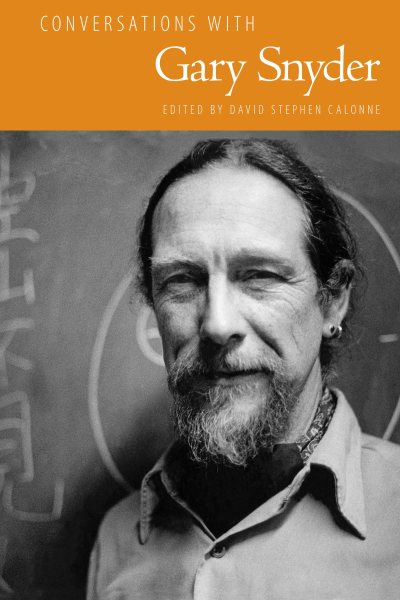By Frank LaRue Owen. Special to the Clarion-Ledger Sunday print edition (July 7)
Some writers move, inspire, or entertain their readers. Other writers create movements of conscience and spark poetic consciousness in whole generations of people that follow them. Gary Snyder is of the latter feather.
 In Conversations with Gary Snyder, we are offered a rare glimpse into the inner life of the Pulitzer Prize-winning poet through twenty-one interviews from different phases of his esteemed career. Like an archaeological dig that gently brushes away the dust of years to reveal the storied bones of life and culture, the masterful curation of these insightful conversations from different chapters of Snyder’s life reveals a gleaming thread of topics that aren’t just relevant to American literature, but—even five decades later in some cases—are themes that remain deeply pertinent to the times we’re living through.
In Conversations with Gary Snyder, we are offered a rare glimpse into the inner life of the Pulitzer Prize-winning poet through twenty-one interviews from different phases of his esteemed career. Like an archaeological dig that gently brushes away the dust of years to reveal the storied bones of life and culture, the masterful curation of these insightful conversations from different chapters of Snyder’s life reveals a gleaming thread of topics that aren’t just relevant to American literature, but—even five decades later in some cases—are themes that remain deeply pertinent to the times we’re living through.
Readers will find that many of the collected interviews grapple with subjects that require us to look in the mirror at who we are as a society. In this way, the book is not merely about a poet or his poems, but is, all-at-once, a cultural history, an ecological indictment, and a disturbingly visionary statement in the psychological, sociological, and futuristic sense.
Those already familiar with Gary Snyder are in for a real treat. Devotees of his poetry are no strangers to the subtle “fragrances” that hover like incense in the background of his writings. Gathered at the periphery of a Snyder poem or essay, or scampering right through the middle of one, we encounter Pacific Northwest Coast native lore, a flash of Buddhism, stirrings of deep ecological empathy, or an outright protest about the Western world’s assault on the natural world. All of these subjects, and more, rush forward on full display as major features in the interviews editor David Stephen Calonne has compiled.
From his enshrined place within early American Beat poetry (the character Japhy Ryder in Jack Kerouac’s The Dharma Bums was modeled after Snyder) to his eloquent articulation of his writing process as stemming from an obviously Zen-trained body-mind integration, what may have once been an understated personality silhouette for some readers of Snyder emerges full-force as a three-dimensional profile of an American national treasure.
In each of the interviews—ranging from sources as diverse as Newsweek, Shambhala Sun magazine, an interview at Naropa University’s Kerouac School of Disembodied Poetics, and a truly fascinating dialogue from the late ’60s between philosopher Alan Watts, poet Allen Ginsberg, psychedelic proponent Timothy Leary, and Snyder—we come face to face with the mind-essence of an authentic American Zen man, who is also known to some by his dharma name Chofu (“Listen to the Wind”).
The end result can only be a singular conclusion. Snyder is of a rare breed; a veteran “psychonaut” (explorer of consciousness and the spirit of place). In this way, a refreshing portrait is offered of a searingly awake person, born in the U.S. but truly liberated from the constraints, blind spots, spiritual impediments, and cultural biases of mindless consumerism and the modern Judeo-Christian worldview.
Even more important, by the time readers of this work reach the final pages, they will receive the distilled benefits of Snyder’s lifelong journey in the form of an invitation; to be more at home in one’s own skin, to hold an allegiance to the deeper story flowing beneath our troubled national psyche, to be conscious that we all belong to a sacred reality we need desperately to remember—a planetary citizenship that thinks of humanity and nature as one extended family.
Frank LaRue Owen is a Mississippi native, an alumnus of Naropa University, and the author of three books of poetry, The School of Soft-Attention,The Temple of Warm Harmony, and the forthcoming 2020 release Stirrup of the Sun & Moon. He will be a panelist in the upcoming Mississippi Book Festival, August 17, 2019, at the Mississippi State Capitol.


Comments are closed.